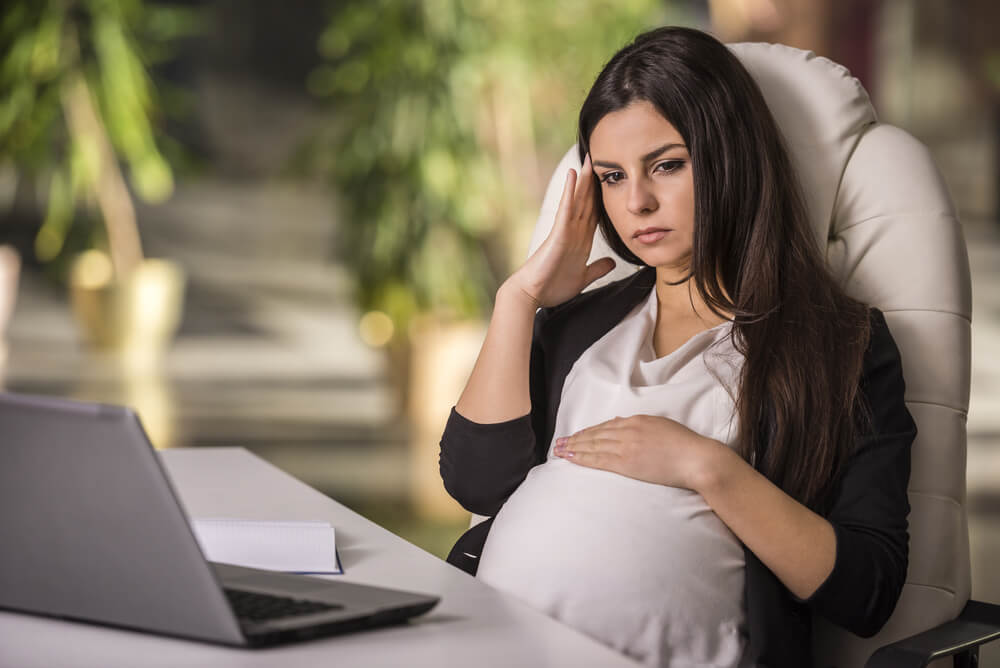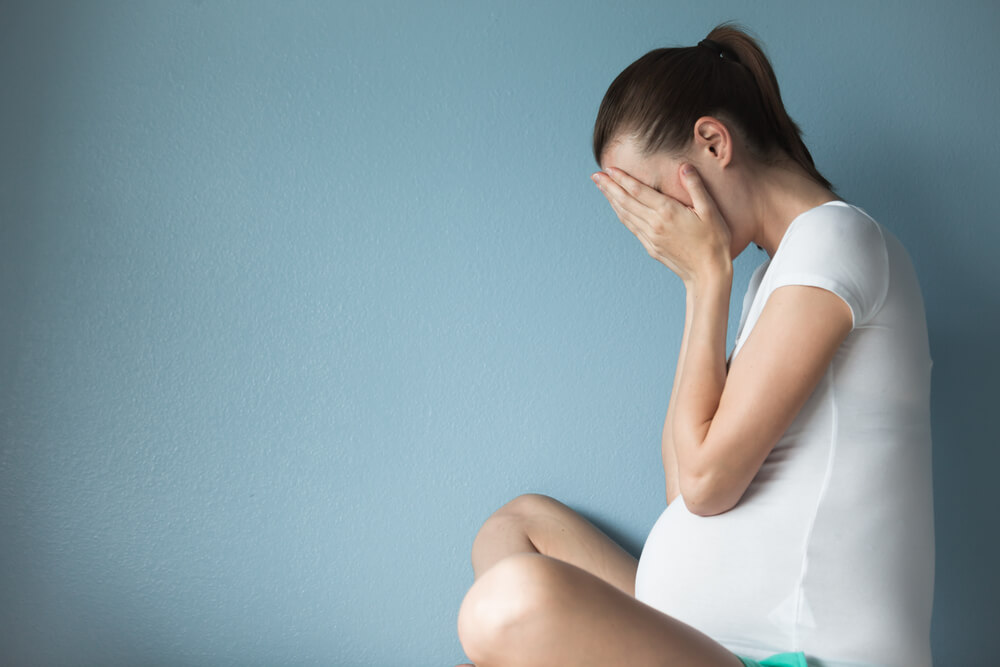Pregnancy can be one of the most wonderful times in a woman’s life and one of the most stressful and anxiety-producing. Nearly all women report some level of anxiety during pregnancy, but how can you know pregnancy anxiety is too much?
At South Miami OB-GYN Associates, we strive to keep you as worry-free as possible. Whether you’re simply looking for tips on how to reduce stress during pregnancy or wondering can stress cause miscarriage, is anxiety early pregnancy normal, Dr. Chi is here to help you get the answers you need.
What is Stress?
Stress is your body’s physical response to stimuli, commonly known as stressors. These stressors are conditions that throw us off balance, such as change, pressure, or perceived threat. They can come from either inside or outside of us.
Stress is necessary for survival. In stressful situations, the amygdala is activated, and our survival instincts kick in. This reaction is popularly called the fight or flight response.
During this stage, our body responds to the stressor. It accelerates our heartbeat, blood pressure, and breathing inhibits digestion and increases blood sugar levels to provide our muscles with energy and our mind with focus.
Most of the stress we experience comes from within us. These mental stressors are mainly caused by perceived threats and pressures from our daily lives.
Types of Stress

Not all stress is a bad thing. As mentioned above, stress is necessary. Most people have been conditioned to think stress is only a bad thing to avoid at all costs. Yet, it can be both negative and positive.
Eustress
This is positive stress. It can be used as motivation to achieve more and persevere through challenges. This form of stress brings positive feelings because the stressor is interpreted as an opportunity or challenge that one can successfully overcome by using coping skills.
Distress
This is negative stress. When people think of or are stressed, they usually refer to distress. This form brings negative feelings as the stressor is interpreted as a source of harm or a threat that one cannot overcome. As we continue, any future mention of stress is distress.
Distress is:
- Anxiety producing
- Short- or long-term
- Viewed as outside of our coping abilities
- Unpleasant feelings
- Decreased performance
- The cause of mental and physical problems
Can Stress Cause Miscarriage or Other Complications
A correlation between stress and miscarriage has not been made. While prolonged stress is generally unhealthy for anyone pregnant or not, the short answer to the question can stress cause miscarriage is no. According to ACOG, around 10% of known pregnancies end in miscarriage. Most often, early miscarriage is caused by a chromosomal abnormality that stops the embryo’s normal development. This means most times, there’s nothing you can do to prevent a miscarriage.
Being stressed and anxious in pregnancy can lead to preeclampsia, increase the chances of your baby having a low birth weight, or being premature. However, while prolonged stress is not linked to miscarriage, it can cause other complications during pregnancy. High levels of stress that continue for a long time may cause health problems, such as high blood pressure and heart disease. This is why it’s a good idea to learn how to reduce stress during pregnancy.
How to Reduce Stress During Pregnancy
Our top tips to reduce stress and improve your overall health:
- Practice mindfulness and identify your stressors
- Rest as much as possible
- Practice self-compassion instead of self-criticism
- Eat a well-balanced diet
- Talk it out with someone you trust
What is Anxiety?
Anxiety is a strong feeling of unease, worry, or fear. It often presents as a side effect to long-term distress and is accompanied by depression. Other times it is situational or a symptom of a more significant condition.
While it’s normal to be anxious in pregnancy, some women find it hard to control their worries. Their feelings of pregnancy anxiety are more constant and can often negatively affect their daily lives.
An anxiety disorder is more than feeling anxious about a specific situation; it occurs when feelings of anxiety and stress don’t go away, can’t be controlled easily, and come on without any particular reason. When this type of anxiety happens, it is time to seek help.
Your chances of developing an anxiety disorder are greater when you’re pregnant. If you already have an anxiety disorder or you are someone who worries a lot, you may be at an even greater risk of developing anxiety during pregnancy. It’s essential to seek treatment for anxiety early in pregnancy to make sure you and your baby receive proper care.
Common Symptoms of Pregnancy Anxiety:
- Feeling an uncontrollable sense of anxiousness
- Excessive worry, especially about your health or baby
- Butterflies in your stomach
- Inability to concentrate
- Feeling irritable or restless
- Muscle tension
- Insomnia or trouble sleeping
- Racing heartbeat
- A feeling of overwhelming dread
- Fear of dying
- Chest pain or difficulty breathing
- Shaky or weak limbs
- A tingling sensation
Causes of Anxiety During Pregnancy
It’s quite common to feel a bit anxious in pregnancy about giving birth. It is rare, but some women are so afraid of giving birth that they don’t want to go through with it, even if they want to have the baby. Severe fear of childbirth or pregnancy may develop because of a past traumatic experience such as miscarriage, stillbirth, or neonatal death. This is a form of post-traumatic stress disorder and needs to be treated immediately.
Other Risk Factors Include:
- Current or past anxiety disorder diagnosis
- Family members with anxiety disorders
- Past health challenges during pregnancy or labor and delivery
- Other personal health challenges, including other mental health conditions
- An older baby or child with health challenges
- Trauma from your childhood, such as violence, abuse, or neglect
- Use of certain illegal drugs
- Excessive long-term stress in everyday life
Does Anxiety Affect Your Baby?
Luckily, anxiety in early pregnancy or at any stage of pregnancy doesn’t cause miscarriage or directly affect your baby’s development. It can, however, affect your overall health, much like prolonged excessive stress. Therefore, it’s a good idea to get your anxiety under control as it has been linked to stress conditions like preeclampsia, premature birth, and low birth weight.
Coping With Pregnancy Anxiety

Dealing with anxious feelings during pregnancy can usually be managed without medications. There are lots of medicines deemed safe for use during pregnancy. Yet, if symptoms become moderate to severe or you were on medication before becoming pregnant, your doctor may want to discuss the benefits of beginning or continuing medication to you and your baby.
Our Top Tips for Managing Anxiety:
- Talk to someone you trust
- Practice self-compassion
- Exercise (if cleared by your doctor), walking, and yoga are great options
- Avoid caffeine and other stimulants
- Eat well
- Avoid smoking, alcohol, and illegal drug use
- Learn to use progressive relaxation
- Attend counseling using CBT (cognitive behavioral therapy)
- Practice meditation
- Get a massage
- Take up journaling
Remember, you are allowed to feel stressed, anxious, or even depressed during pregnancy. Feeling guilty for having these feelings will only make them worse.
It’s okay to need help managing these feelings, and we invite you to feel free to schedule an appointment with us. We at South Miami OB-GYN Associates offer care for every stage of pregnancy. We will be supportive and non-judgmental in helping you deal with your anxiety and restore your mental health.




